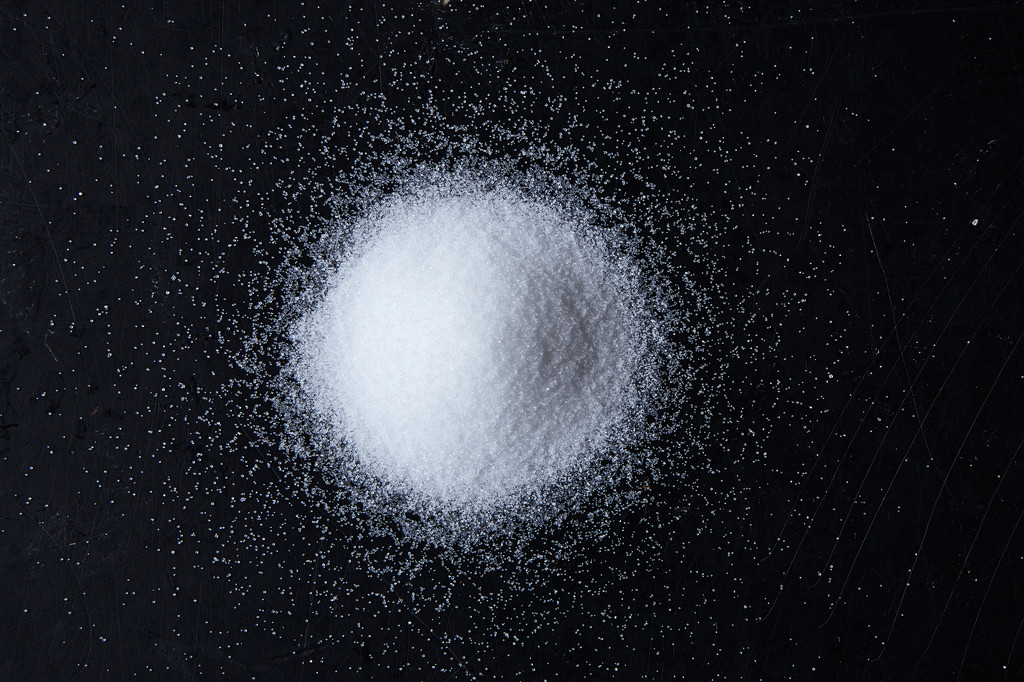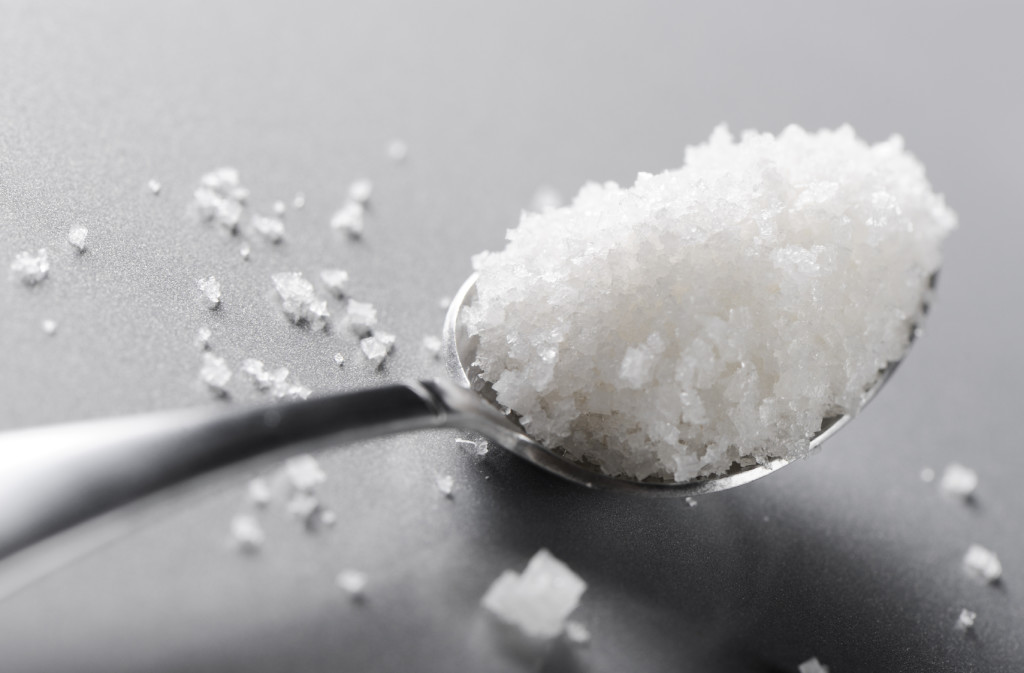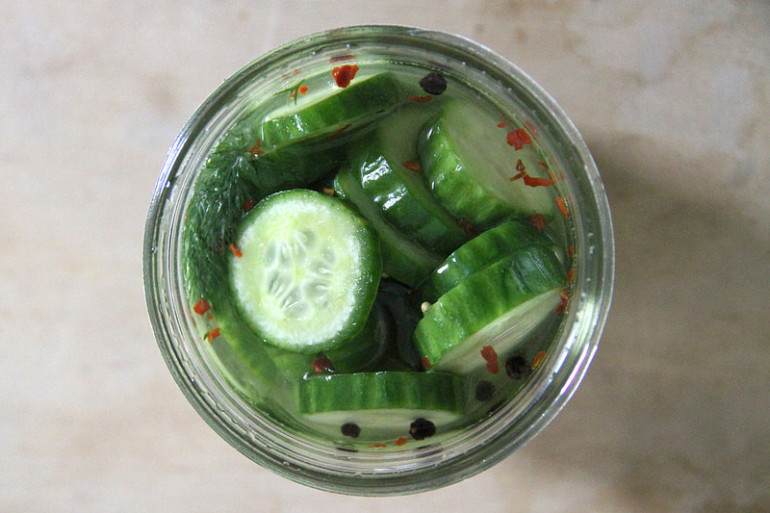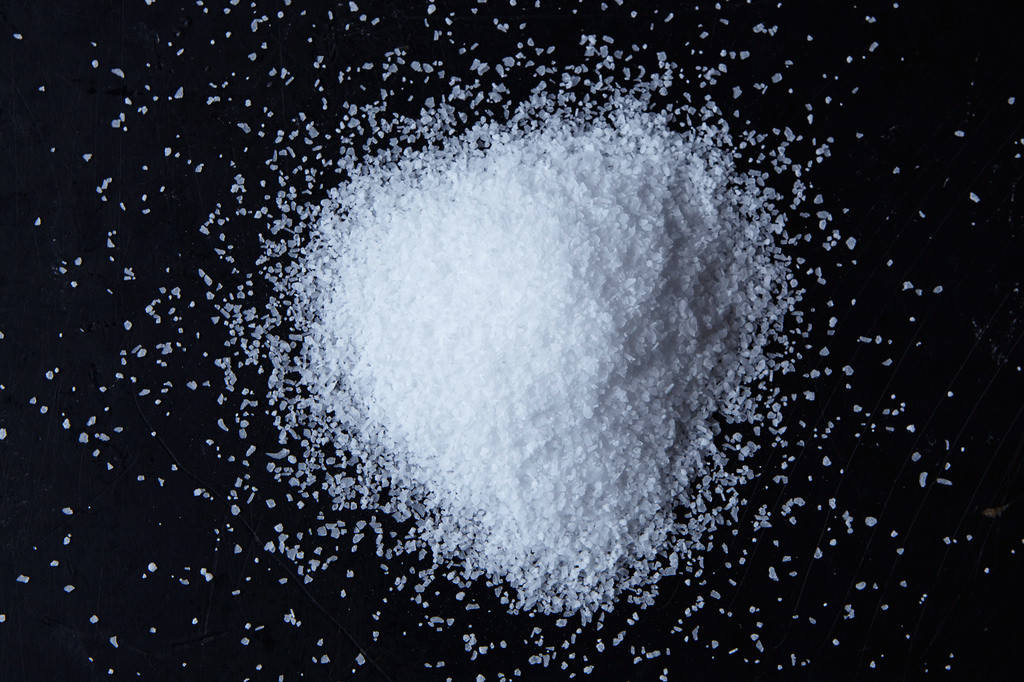From omelets to French fries or just on some grilled vegetables, salt tastes good on everything. But us college kids are probably only familiar with the typical table salt that we grew up with. There’s a lot more out there than just simple white salts, and learning about their flavors and uses can make you a much more trendy and sophisticated foodie.
1. Table Salt

Photo by Bobbi Lin
This is the sodium chloride you’ve learned about in chemistry. Although most commonly used, it’s the most unnatural, refined form of salt out there. It’s artificially sprayed and processed to remove any possible impurities. It also contains additives, including anti-caking agents to prevent it from clumping together and iodine to prevent widespread deficiencies.
2. Sea Salt

Photo courtesy of blog.fairwaymarket.com
Most recently seen with caramel or dark chocolate, sea salt has become more popular because of its strong burst of flavor. The term “sea salt” means exactly what it sounds like: salt that came from evaporated ocean water. It is usually not processed, comes in a wide range of colors and flavors, and can be eaten with anything from your favorite desserts to cooked meats. Try these sea salt caramel apple pies if you’re feeling inspired.
3. Himalayan Pink Salt
This type of salt is found in Pakistan and comes from the second largest salt mine in the world. It’s thought to be healthier than regular table salt because it contains less sodium and more of those other minerals that are naturally found in salts. The pink color comes from remnants of iron oxide, a type of rust, and will definitely make any meal you prepare look a lot more sophisticated and fancy.
4. Pickling Salt

Photo by Sarah Silbiger
This is the purest type of salt you can find. The name gives it away, but it’s the salt that’s used to make pickles, sauerkraut and any other vegetables you may try to pickle. The flavor is extremely strong and concentrated, so if you’re trying to prepare foods with this type of salt, keep in mind that less is more.
5. Kosher Salt

Photo by Bobbi Lin
If you ever decide to make margaritas, this is the type of salt you want on the rim of your glass. It can be used for all cooking purposes because the flavor has a quick impact on whatever it is paired with. Kosher salt got its name because it works well to cure meats, one part of the process to make a food “kosher” according to Jewish religion.


